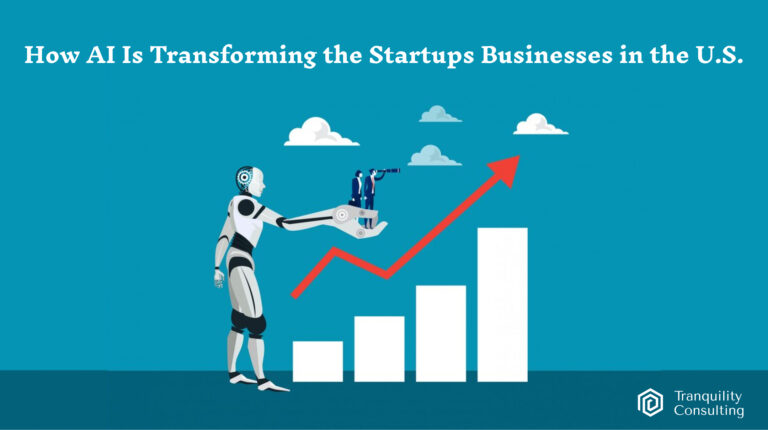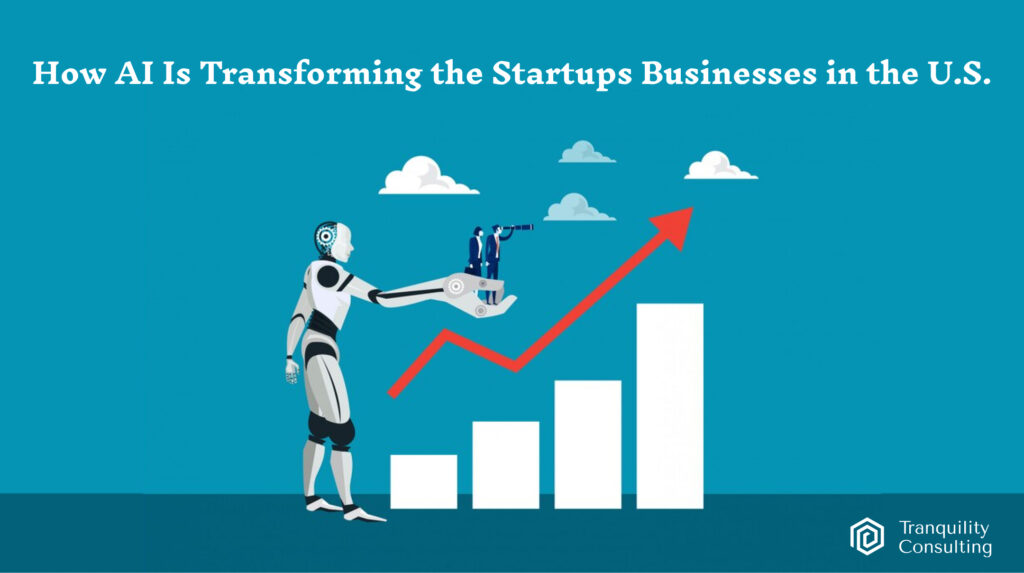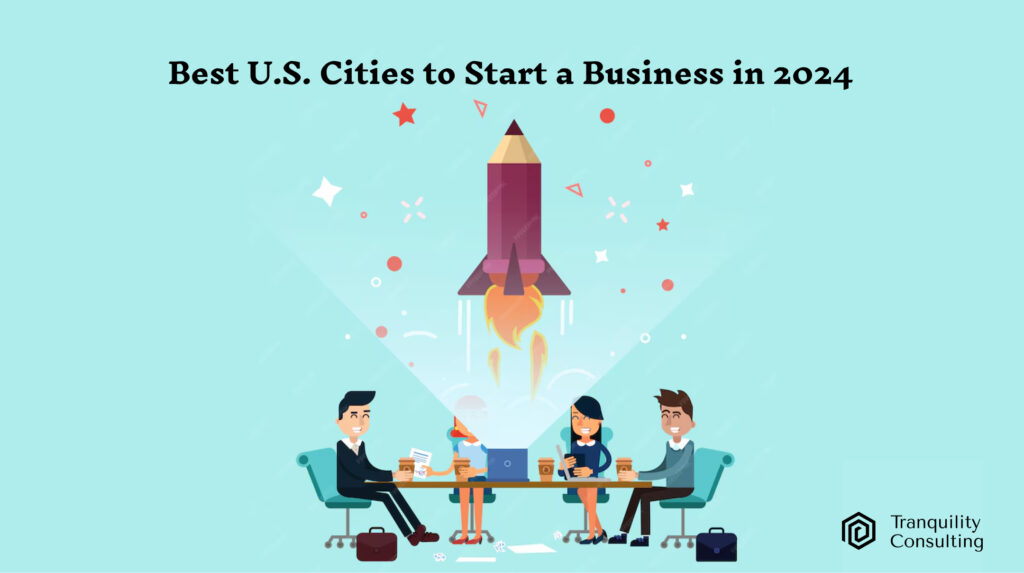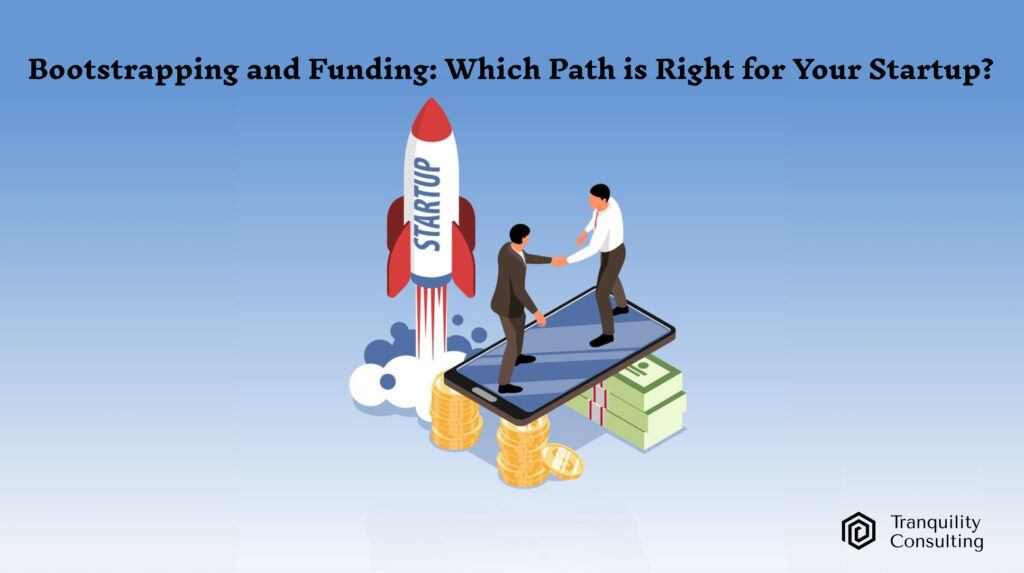Artificial Intelligence (AI) has recently been at the forefront of technological innovation. While more giant corporations initially took charge of adopting AI, startups across the U.S. are quickly catching up and leveraging this technology to level the playing field. AI is no longer just a buzzword; it’s becoming integral to how startups operate, innovate, and scale. This blog explores how AI is transforming the startup businesses in the U.S. ecosystem and why embracing it is important for business success.
1. Enhancing Decision-Making with AI-Powered Analytics
One of the most significant advantages AI offers startups is its ability to improve decision-making through data-driven insights. Traditional analytics often require significant manual input and can be prone to human error. AI tools, however, can process massive amounts of data in real time, identify trends, and predict outcomes, enabling startups to make informed decisions faster.
- AI in Market Research: Startups can use AI-powered tools to conduct market research, identify potential customers, and assess competitors, providing a competitive edge in crowded markets.
- Predictive Analytics: By analyzing historical data, AI can forecast future trends, helping startups adjust their strategies, anticipate customer behavior, and optimize operations.
2. Automation: Streamlining Operations for Efficiency
Automation is a game-changer for startups aiming to do more with less. AI-driven automation tools can handle repetitive tasks, freeing up valuable time for founders and employees to focus on strategic initiatives. This boosts productivity and reduces operational costs, which is a critical factor for early-stage startups.
- Customer Support Automation: AI chatbots are increasingly becoming standard in customer service. They provide 24/7 support and handle common inquiries, thus improving customer satisfaction while reducing labor costs.
- Back-End Automation: Startups use AI to automate processes like invoicing, payroll, and data entry, minimizing human errors and speeding up workflows.
3. AI for Personalized Marketing
Marketing is a vital area where AI is making a substantial impact. Personalized marketing can differentiate a startup from its competitors in a competitive market. AI tools can analyze user behavior, preferences, and demographics to create tailored marketing campaigns that resonate with target audiences.
- Content Personalization: AI can optimize content delivery based on user interaction data, helping startups send the right message at the right time.
- Email Marketing Automation: AI-driven email platforms can segment audiences, predict the best times to send emails, and customize content, leading to higher conversion rates.
- Social Media Targeting: Startups can use AI to identify social platform trends, refine ad targeting, and improve engagement rates with predictive algorithms.
4. Accelerating Product Development with AI
For startups, time-to-market is a critical success factor. AI accelerates product development by enabling faster prototyping, testing, and refinement. AI-powered tools can simulate scenarios, predict outcomes, and identify potential flaws before a product launch.
- AI in Product Design: Startups use AI for design processes, employing generative design tools to create multiple design iterations based on set parameters, speeding up development.
- Quality Assurance Automation: AI algorithms can run thousands of tests in a fraction of the time it would take a human team, ensuring product reliability and minimizing post-launch issues.
5. Improving Customer Experience Through AI
Customer experience (CX) is a most important differentiator for startups. AI is advancing CX by providing faster, more personalized, and consistent service.
- Chatbots and Virtual Assistants: AI chatbots handle inquiries, manage support tickets, and make product recommendations, creating a seamless customer experience.
- AI in E-commerce: Startups in the e-commerce sector utilize AI for personalized product recommendations, dynamic pricing strategies, and enhanced search capabilities, driving higher customer satisfaction and retention.
6. Boosting Financial Management and Fundraising
Managing finances is often a challenge for startups, especially when scaling. AI can simplify financial management by providing real-time insights and automating routine tasks. Additionally, AI is changing the fundraising landscape, helping startups attract investors and manage financial data more efficiently.
- AI in Financial Planning: AI tools can monitor cash flow, predict future expenses, and offer strategic recommendations to maintain financial health.
- Investor Insights: Startups can use AI to analyze market conditions, competitor activities, and investment trends, assisting in preparing data-driven pitches for potential investors.
7. AI-Driven Recruitment: Finding the Right Talent
Recruiting the right talent is essential for any startup’s success. AI is transforming the hiring process, making it faster and more efficient. AI-driven recruitment tools can analyze resumes, conduct initial screenings, and predict a candidate’s suitability based on job requirements.
- Automated Resume Screening: AI can filter through hundreds of resumes in minutes, identifying top candidates based on specific criteria.
- Predictive Hiring: Some AI platforms assess candidate compatibility and potential performance, reducing the risk of a bad hire and saving time and resources.
8. Leveraging AI for Business Scalability
Startups primary objective is scalability, and AI is proving to be a critical enabler. AI tools allow startups to manage increased demand without compromising efficiency or quality.
- AI for Supply Chain Optimization: AI helps startups streamline supply chain operations, predict inventory needs, and manage logistics more effectively, supporting scalable growth.
- Data Management: AI assists in handling large volumes of data, ensuring accuracy and efficiency as startups expand their customer base and operations.
9. AI and Competitive Advantage
AI can offer startups a significant competitive edge by allowing them to operate with a level of sophistication traditionally reserved for larger companies. By integrating AI, startups can better understand their market, adapt to changes quickly, and innovate faster than their competitors.
- Competitive Market Analysis: AI can continuously monitor competitors, track industry trends, and identify new opportunities, allowing startups to remain agile and proactive.
- Innovation Acceleration: Startups using AI to optimize processes and develop products can often outpace competitors, achieving market dominance in shorter time frames.
Conclusion
AI is undeniably transforming how startups operate in the U.S. By leveraging AI, startups can enhance decision-making, streamline operations, personalize marketing, accelerate product development, improve customer experience, manage finances, recruit talent, and scale efficiently. As AI technology continues to evolve, its role in the startup ecosystem will only grow, making it a important tool for any entrepreneur looking to succeed in today’s competitive AI market.





